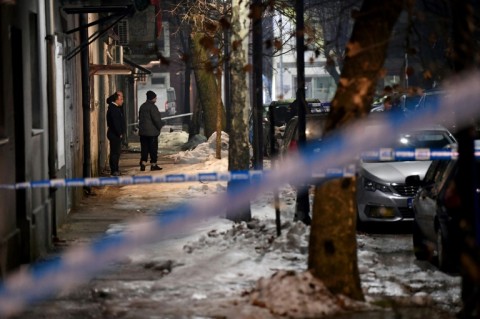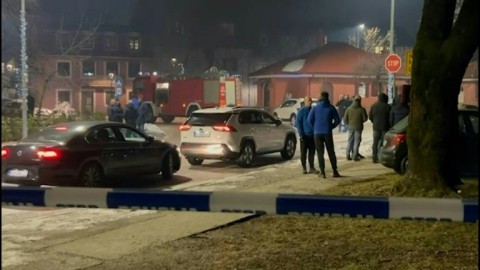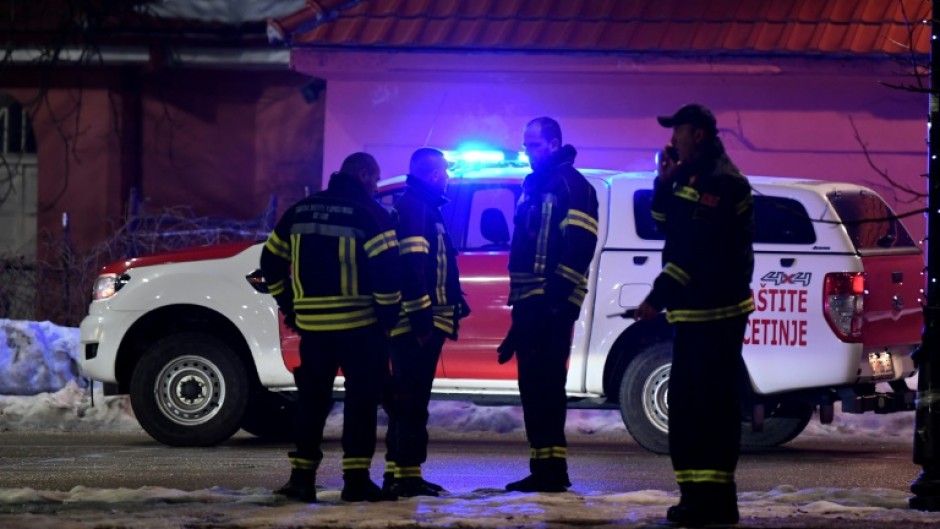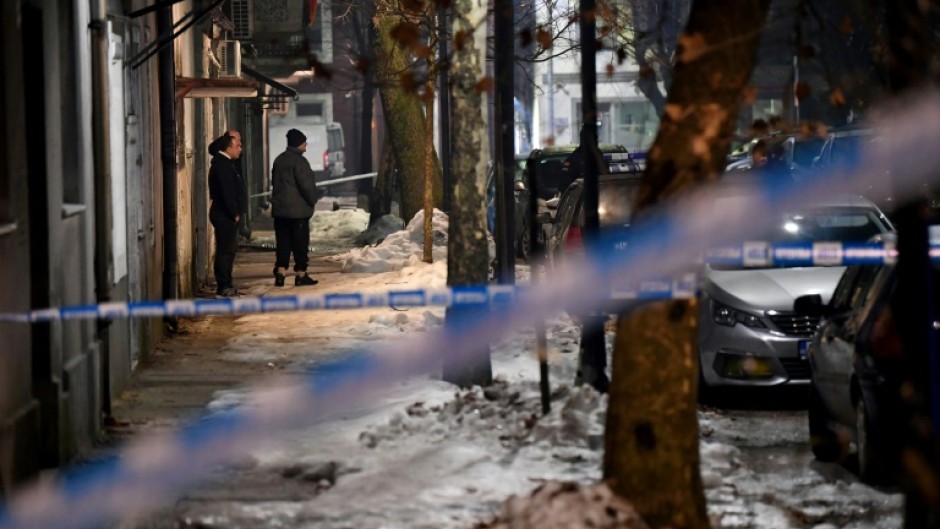Montenegro on Thursday began three days of national mourning, a day after a gunman went on a rampage, killing 12 people including two children.
The 45-year-old gunman died after shooting himself in the head when he was surrounded following an hours-long manhunt, police said early on Thursday.
The killing spree started around 5:30 pm on Wednesday at a restaurant in Bajice, a village near the southern town of Cetinje, according to police.
"Twelve people were killed, of whom two were children," prosecutor Andrijana Nastic told reporters in Cetinje.
The victims were killed at five different locations, with the first four in the restaurant, the prosecutor said.
Police said the two murdered children were aged 10 and 13.

Four people were also seriously injured and transported to a hospital in the capital, Podgorica.
On Thursday, all four were at an intensive care unit and their lives were in danger, a hospital statement said.
- 'Completely senseless' -
"To kill children ... is completely senseless. That is not a crime, it is something more than that," pensioner Danilo Zecevic told AFP in Cetinje.
The streets of Cetinje and Bajice were deserted on Thursday morning, and a police patrol was stationed in front of the gunman's house at the entry to the village, according to an AFP photographer.
Podgorica mayor Sasa Mujovic said that candles would be lit for the victims at the capital's main square on Thursday evening.
According to police chief Lazar Scepanovic, the suspect "had consumed alcoholic beverages all day long" before an altercation between him and another restaurant guest.
He went home and took a weapon before returning to kill four people at the restaurant and then moving on to the other locations, Scepanovic said.
Police earlier had ruled out any "showdown between organised criminal groups", adding that the firearm was owned illegally.
- Weapons control -
Prime Minister Milojko Spajic labelled the shootings a "terrible tragedy".
He described them as a "restaurant fight" that went wrong and that he would be tightening the country's criteria for firearms possession.
Spajic suggested that the "tragedy" should lead to a review of the country's gun ownership laws.
The country's National Security Council is to meet on Friday to review "key challenges in the detection and seizure of illegal weapons" as well as the recruitment of additional police officers, a government statement said.
Spajic had posted earlier on X that "all options, including a complete ban on the possession of weapons", would be considered.
Cetinje resident Igor Simonovic stressed that "weapons should be put under tight control".
According to the Small Arms Survey (SAS), a Swiss research program, there are approximately 245,000 firearms in circulation in Montenegro.
But mass shootings are rare in the Balkan nation of just over 620,000 people.

Cetinje, with a population of around 13,000 people, is the site of the former royal capital and sits in a mountainous valley that has largely stagnated economically.
The area and its surroundings are strongholds of organised criminal groups, and clashes erupt sporadically between rival mafia clans.
In June, two people were killed in a blast at a Cetinje sports centre, an attack linked to organised crime.
Organised crime and corruption remain two major issues plaguing Montenegro that authorities have pledged to tackle in its bid to join the European Union.
By Savo Prelevic


